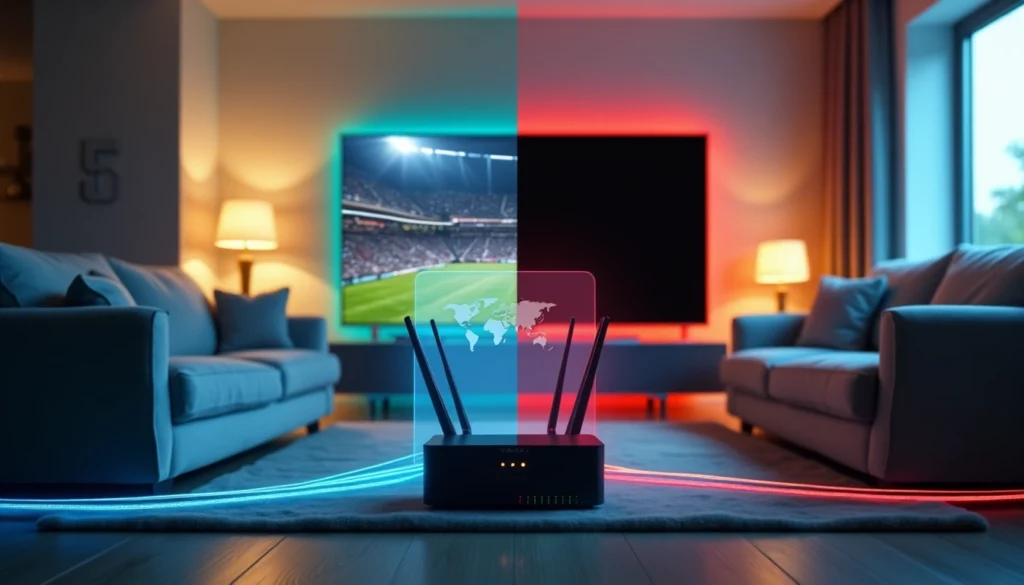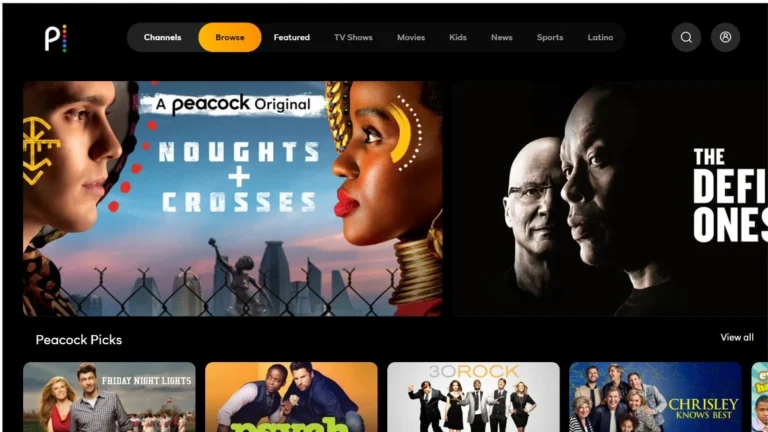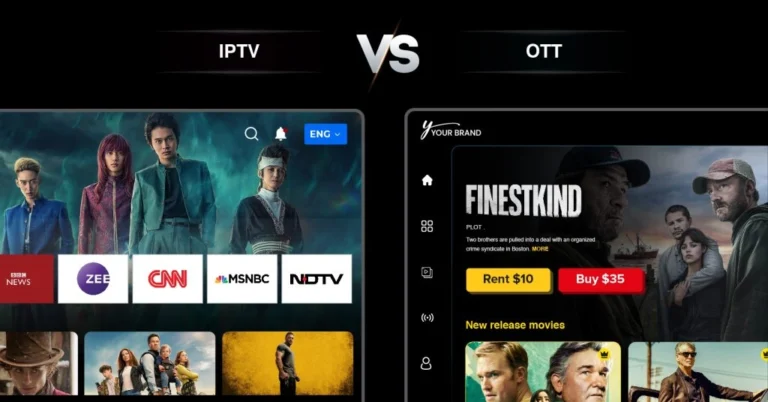IPTV TV Providers: The Truth Behind Geo-Blocking in 2025

IPTV TV Providers: The Truth Behind Geo-Blocking in 2025
It may surprise you to learn that major UK ISPs including BT, Virgin Media, Sky, and TalkTalk often block IPTV TV providers. Due to copyright issues and network congestion, these ISPs limit access to IPTV services, particularly during major athletic events.
“This content isn’t available in your country” is a common annoying message that users get while attempting to access IPTV TV providers. Businesses use your IP address to apply geo-blocking, which limits access according to your location. They must abide by regional content regulations and license agreements, which vary from nation to nation.
During moments of excessive traffic, major ISPs including BT, EE, and PLUSNET consider restricting particular IPTV providers. They take this action to lessen network congestion and enforce copyright rules. According to a 2018 survey, 86% of free VPN programs for mobile devices struggle with privacy policies, putting users at risk if they attempt to go around these limitations.
We’ll examine the reality of IPTV companies’ 2025 geo-blocking tactics, as I mentioned in this article. Attention should be paid to the technical strategies they employ, the justifiable justifications for these limitations, and the strategies users might employ to ensure safe internet access.
Understanding How IPTV TV Providers Use Geo-Blocking in 2025
In 2025, IPTV providers will employ three advanced technologies to implement geo-blocking. Deep packet inspection, DNS manipulation, and IP filtering combine to provide a robust infrastructure that restricts access to content according to geographic location.
IP Address Filtering Techniques in IPTV Services
The most straightforward yet efficient geo-blocking technique still employed by IPTV networks is IP address filtering. This technique uses your unique IP address to tell content providers where you are. On an IPTV platform, your IP address is sent to the server of the service. After then, the server determines whether you are in an authorized area. If you are in a restricted region, the system immediately blocks access and displays a “content unavailable” warning.
This method has been improved by IPTV platforms using server-side IP whitelisting and blacklisting. Through whitelisting, the system restricts access to material to pre-approved IP ranges. IP addresses from forbidden regions are blocked by blacklisting. Now, IPTV providers can design unique video bundles according to users’ geographic locations.
IP filtering facilitates the use of complex tactics by content providers:
- Regional content customization based on licensing agreements
- Pay-Per-View content restriction to specific territories
- Automatic access curtailment for viewers outside permitted boundaries
DNS-Based Geo-Blocking in IPTV Platforms
Compared to basic IP filtering, DNS-based geo-blocking provides a more advanced solution. This method modifies the Domain Name System, which is the directory on the internet that translates website names into IP addresses. Instead of delivering requested material, IPTV providers utilize DNS manipulation to direct users from restricted locations to error pages.
This concept is expanded upon by intelligent DNS redirection systems. When users attempt to connect from unapproved regions, the DNS resolver either delivers inaccurate IP information or reroutes the connection to other servers with geo-restriction notifications. Therefore, the DNS system can still impose regional restrictions even if users attempt to alter their apparent location.
DNS-based geo-blocking does more than only verify user-provided data; it operates at the network infrastructure level. It is more difficult for regular users without specialized tools to get around these limitations.
Deep Packet Inspection (DPI) for IPTV Traffic Control
In the IPTV world of 2025, deep packet inspection is the most complete geo-blocking technology. Unlike other techniques that simply examine the most basic connection information, DPI examines the actual content of data packets as they travel across the network. IPTV providers are able to examine traffic in great detail.
DPI systems examine the complete data payload rather than just the headers and are able to:
- Differentiate between attempts at circumvention and authentic IPTV traffic.
- Determine which VPN connections could get over geo-restrictions and prohibit them.
- During busy hours, give video packets priority over other kinds of internet traffic.
For video-on-demand services that simply need to manage hundreds of distinct session requests simultaneously, DPI technology proves very useful. Even when users attempt complex escape strategies, DPI systems can identify unauthorized access attempts by pattern matching and protocol anomaly detection.
To make sure that content delivery complies with license agreements, top IPTV operators today deploy DPI solutions from companies like Ellacoya Networks, Allot, Sandvine, and Cisco. Following the example set by European providers, North American IPTV systems have embraced this technology to preserve appropriate bounds for content distribution.
Legal and Regulatory Drivers Behind IPTV Geo-Blocking
IPTV TV providers are forced to limit material based on geographic limits due to the intricate legal and regulatory structure underlying geo-blocking technology. These limitations are the result of intricate regulatory regulations that have an impact on the global distribution of digital information.
Copyright Enforcement and Licensing Agreements
IPTV TV companies’ usage of geo-blocking is based on copyright enforcement. IPTV content licensing regulates the delivery of material through several levels of rights management. Among these levels are:
- Streaming Rights: Agreements with content owners for live broadcasts
- VOD Rights: Separate licenses for on-demand content
- Recording Rights: Permissions for DVR and catch-up services
For reputable IPTV providers, the largest outlay of funds is content license fees. To provide equitable recompense for intellectual property, they pay affiliate fees to content owners for every channel and subscriber. Providers who violate these agreements risk severe legal repercussions, which include penalties of up to £870 million and jail sentences ranging from three to ten years for widespread distribution.
Because they might be held accountable for permitting access to unlicensed content, ISPs are in a difficult position. To legally defend themselves, a large number of them immediately disable dubious IPTV services.
Regional Content Restrictions and Compliance
Regional limitations extend beyond copyright concerns. Laws governing permissible material, e-commerce, and data privacy vary from one country to another. Geo-blocking is used by IPTV providers to:
- Follow local broadcasting laws that change between jurisdictions
- Stick to regional content restrictions about prohibited material
- Meet different data protection rules like GDPR in Europe
These policies have actual repercussions for users. Attempting to circumvent geo-blocked content may violate the terms of service of a service. Although it’s generally legal to use a VPN, firms may terminate or suspend accounts if they discover individuals using them. Although geo-blocking can be annoying, users should be aware that these limitations frequently have legitimate legal justifications.
Impact of New 2025 Digital Trade Laws on IPTV
As far as geo-blocking is concerned, the EU is unique. The EU has attempted to reduce geo-blocking in order to establish a more cohesive digital market through its Digital Single Market policy. However, geo-blocking is still permitted by law and frequently necessary outside of the EU.
IPTV TV companies now face more challenges due to 2025 digital trade regulations. Enforcement of new rules pertaining to digital trade has increased against illegal IPTV businesses. Policies that do not adequately address market access for information and communications technology services have been identified by the Information Technology Industry Council. Small and medium-sized firms are most affected by these rules.
Law enforcement has increased the pressure on illegal IPTV service providers and customers. Serious copyright infringement now carries a maximum sentence of 10 years in jail under the Digital Economy Act. By issuing cease-and-desist letters and conducting follow-up investigations, the Police Intellectual Property Crime Unit has also taken a more aggressive stance.
Governments upholding existing trade agreements and addressing digital trade barriers are supported by industry organizations. They demand additional resources for robust digital trade policy and are in favor of new digital trade agreements with other governments. While maintaining an emphasis on appropriate licensing and regional compliance, these initiatives may eventually result in more uniform international regulations for IPTV services.
Materials and Methods: How IPTV Geo-Blocking is Technically Implemented
Advanced technical techniques are used by IPTV TV providers to impose geo-restrictions on their services. To guarantee that only users in approved zones can access material, these strategies operate covertly in the background.
Server-Side IP Whitelisting and Blacklisting
Geo-blocking is based on IP filtering using whitelisting and blacklisting techniques. IP whitelisting establishes a rigorous “default-deny” policy in which IPTV platforms only let content access from pre-approved IP address ranges. By using a “default-allow” strategy, the blacklisting system prevents IP addresses that have been specifically identified from entering restricted areas.
These controls are implemented at various levels by IPTV providers:
- Firewall configurations that give network access only to specific users/devices
- Edge routers that block unwanted traffic on TCP and UDP ports
- Web servers that handle incoming requests and stop malicious activities
- Application layer rules that filter queries by design
IP-based limitations improve security by ensuring that all platform connections originate from reliable sources. Based on geographic boundaries, IPTV operators can precisely manage the transmission of content.
Smart DNS Redirection Mechanisms
A more sophisticated method of geo-blocking is provided by smart DNS. This technology alters location-related data and intercepts Domain Name System inquiries. When users attempt to connect from unapproved locations, the DNS resolver either transmits inaccurate IP information or reroutes connections to other servers.
Smart DNS does more than simply verify user-provided data; it operates at the network infrastructure level. Regular users without specialized tools will find it more difficult to circumvent the limitations as a result. Additionally, these systems have the ability to select particular website traffic to intercept while maintaining regular operation of other connections.
VPN Detection and Blocking Algorithms
As consumers work harder to get around geo-restrictions, IPTV providers have developed sophisticated VPN detection and blocking algorithms. These systems detect VPN connections using a variety of methods:
To find encrypted VPN tunnels, Deep Packet Inspection (DPI) examines data packets in network traffic. Certain ports that are often used by VPN protocols, such as UDP Port 1194 for OpenVPN, are blocked by the system. In order to spot odd connection patterns that point to the use of a VPN, the providers also examine traffic patterns.
The detection system can recognize IP addresses that are known to be VPN providers and detect numerous connections from a single IP address. It employs data analysis to identify trends that indicate the use of a VPN. When the IPTV service recognizes these VPN connections, it immediately limits access to programming.
Results and Discussion: Challenges Users Face with IPTV Geo-Blocking
Users that attempt to access content outside of their regions face significant difficulties due to IPTV TV providers’ usage of geo-blocking technologies. The streaming experience is impacted by these limitations in a number of ways, ranging from privacy and legal issues to technical performance issues.
Streaming Quality Degradation Due to Geo-Restrictions
When IPTV services identify customers attempting to view geo-restricted content, they reduce quality limits. 4K material need at least 20 Mbps of bandwidth to play smoothly, whereas HD streams just 5-8 Mbps. Regardless of your internet speed, quality dips occur when geo-blocking is enabled. When ISPs detect IPTV streaming activity, particularly during prime time, they frequently cut bandwidth. Because 60% of IPTV users experience streaming issues due to incorrect buffer settings, this makes for a miserable experience.
Increased Latency and Buffering in Blocked Regions
There are significantly greater buffering and delay problems for users in prohibited areas. When users get content through workarounds, packet loss and jitter become commonplace. In streams, even very small packet losses (less than 1/10000) manifest as pixelation or artifacts. During peak hours, network congestion deteriorates streaming quality, which causes further issues for customers in limited zones. This becomes a worse problem during well-attended live events when numerous users attempt to connect simultaneously using workarounds.
User Privacy Risks When Circumventing Geo-Blocks
There are serious privacy and security implications for users who attempt to circumvent geo-restrictions. Numerous third-party IPTV apps contain trackers or spyware that jeopardize personal information. According to research, 49% of companies prioritize user experience over security when implementing access controls, potentially creating vulnerabilities. People frequently use free VPN services to get around geo-blocking, however these come with disadvantages. Approximately 86% of free VPN programs for mobile devices do not have adequate privacy policies, according to a 2018 survey. In certain jurisdictions, using these workaround methods could result in legal issues or account closure due to violations of service agreements.
In areas where IPTV geo-blocking is prohibited, viewers find it more difficult to stream material without interruption due to quality issues, buffering issues, and privacy hazards.
Limitations of Current IPTV Geo-Blocking Strategies
Despite their sophistication, IPTV TV providers’ current geo-blocking systems contain built-in flaws that tech-savvy customers take advantage of. Attempting to impose regional limits presents constant hurdles for content suppliers.
VPN and Proxy Evasion Techniques
The most popular method for getting around geo-restrictions is still virtual private networks. VPN services are currently used by about 25% of active internet users to increase online privacy and circumvent content restrictions. When IPTV providers ban recognized VPN servers, users can simply connect to different servers in the same nation to get back in. Tech-savvy users use obfuscation technology, which disguises VPN traffic as normal browser data, to significantly reduce detection.
Beyond traditional VPNs, dedicated IP addresses provide an additional means of circumventing restrictions. When several connections occur simultaneously, shared VPN IPs cause suspicion. Dedicated IPs, on the other hand, seldom make it onto blocklists and appear exactly like normal individual users.
Smart DNS and IP Rotation Loopholes
Geo-blocking systems are further compromised by smart DNS services. Without completely encrypting the connection, these solutions redirect DNS queries through servers located in authorized countries. Users are able to overcome geographic limitations while maintaining their full connection speed.
However, there are technological limitations with smart DNS. Networks that use dual-stack IPv4/IPv6 protocols have issues because the service only functions with IPv4 addresses. Furthermore, some networks switch IP addresses rapidly, perhaps every 15 to 30 seconds, which complicates geo-blocking and circumvention.
Limitations in Detecting Encrypted Traffic
The largest problem facing IPTV TV providers is identifying encrypted traffic that evades their systems. They are forced to use indirect detection techniques since they are unable to efficiently inspect encrypted data packets. When users add more encryption layers, such as SSL/TLS encryption or SSH tunneling, the issue becomes worse.
Particularly for mobile devices connected to cellular networks, location monitoring itself is not always reliable. This can occasionally result in the unintentional blocking of valid users.





